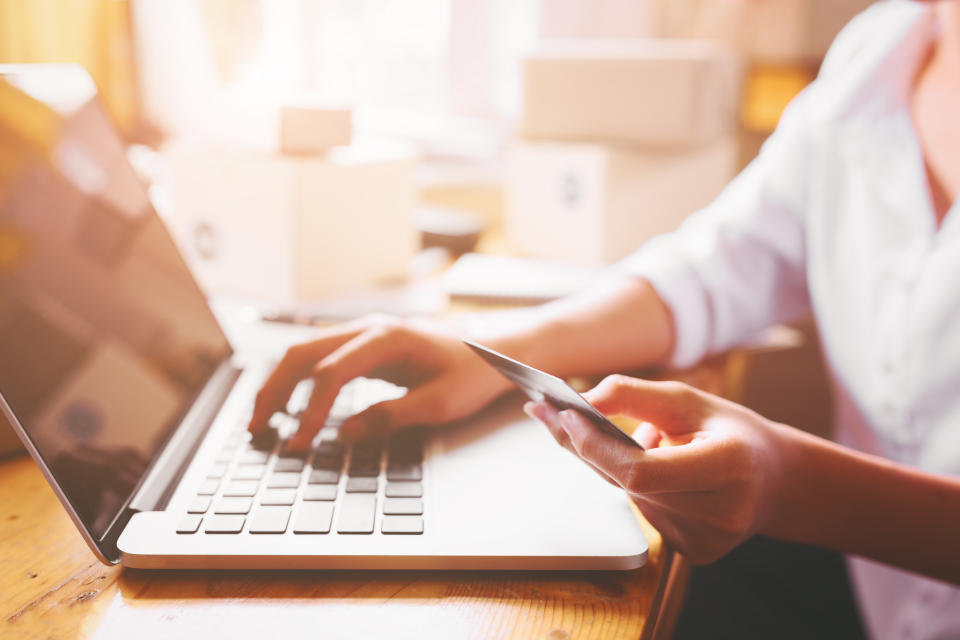5 Questions to Ask Yourself Before Each Non-Essential Purchase You Make
We all have necessities we need to pay for -- housing, transportation, prescription drugs, food. But when we think about the different things we spend money on, most of us have to admit that a fair chunk of our earnings is spent on non-essentials.
Now let's be clear: There's nothing wrong with spending money on "wants" if they make you happy and you can afford them. Many Americans, however, are in a precarious spot from a savings perspective, considering that a good 40% of U.S. adults couldn't come up with $400 to cover an emergency in a pinch. If you're in a similar boat, then you'll need to think long and hard before plunking down cash for anything non-essential, whether it's a new gadget, clothing, or dinner at a restaurant that you could otherwise make at home. Here are five key questions to ask yourself before parting with your cash.

IMAGE SOURCE: GETTY IMAGES.
1. Am I buying this only because it's on sale?
It's tempting to buy things when they're offered at a price that's considerably lower than the going rate. But before you jump on a sale, ask yourself whether the item is something you'd even consider buying at its normal price. If not, then chances are it's not that important to you, or you don't really need it. Remember, when you buy a $100 kitchen appliance for a mere $40, you're not saving $60; you're losing $40, especially if that item is likely to sit unused once you bring it home.
2. Am I actually getting a good price?
It's easy enough for a retailer to slap a "sale" sticker on an item it's looking to unload and hope customers bite. If you're going to buy something non-essential, make sure you're at least not overpaying for it. That means taking a little time to research that item rather than assume that you are, indeed, getting a bargain.
3. Can I pay for this item today?
It's one thing to buy something unnecessary and lose the opportunity to save the money it costs. But it's another thing to rack up even a small amount of debt in the course of treating yourself. The latter scenario is just bad news, because not only can it result in a situation where you're paying more money in interest, but it can also possibly affect your credit score. If you're going to purchase a non-essential, make sure your paycheck can cover it, and definitely walk away if that isn't the case.
4. How many hours of work will this item cost me?
We don't always think of money in terms of our time, but doing so could help you avoid needless purchases. Before you buy something that's clearly a "want," consider the amount of time you'd need to spend working to pay for it. For example, if you earn $15 an hour after taxes, and the item is $120, that's a full day's work. And that's a lot of hustling for an item you might just as easily live without.
5. Is there a better use for the money I'm about to spend?
Most of the time, the answer to this question will be "yes." You're pretty much always better off socking money away in the bank or a retirement fund than buying something that delivers a small amount of instant gratification. But rather than make that comparison, ask yourself whether the cash you're about to fork over for a "want" would instead improve your life in another, more meaningful way. For example, if a $100 gadget catches your eye, but you've yet to repair the annoyingly leaky faucet in your bathroom because you won't want to pay for a plumber, your life will probably improve more once you address the latter.
Any time you make a purchase, you're depriving yourself of the option to use that money elsewhere. That's why it pays to think carefully before loading up on non-essentials, especially if your savings are in a pretty sorry state. Learning to exercise a little self-control will position you to make better decisions -- ones that you might resent in the short term but appreciate tremendously in the long run.
More From The Motley Fool
The Motley Fool has a disclosure policy.

 Yahoo Finance
Yahoo Finance 